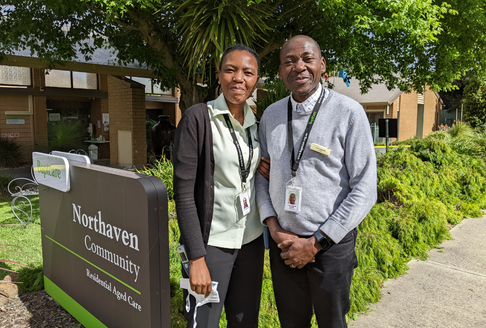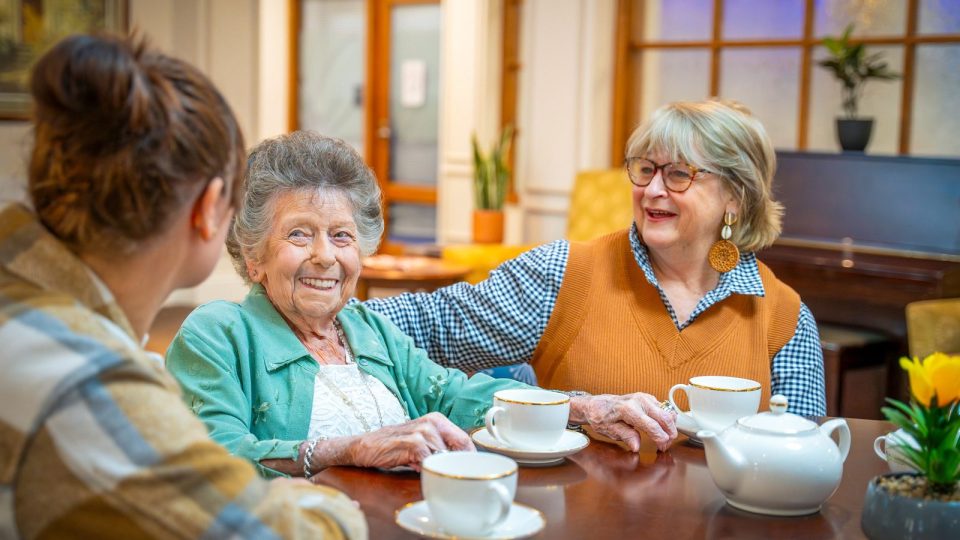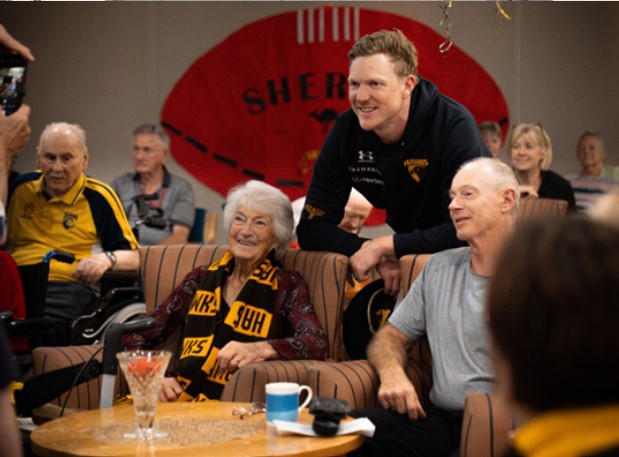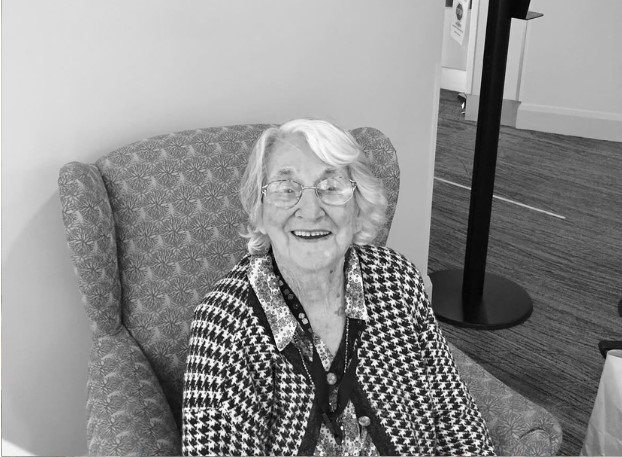Nancy and Fred: Caring for the whole person
- 05 Dec 2022

Our belief at Baptcare is that care should be holistic – not just looking after people’s physical requirements, but also their spiritual and emotional needs.
At Baptcare Northaven Community in the northern Victorian town of Kerang, these equally important aspects are overseen by a married couple.
Nancy Mugambi is the Nursing Unit Manager. Her husband Fred is the Spiritual Care Coordinator, as well as the local Baptist Pastor. Since moving to Kerang five years ago with their two children they have become highly valued members of the community.
NANCY – WHY I LOVE MY JOB
“I like my job because I like changing people’s lives. I love working with the older generation. They are a good bunch, and I especially like when we can put a smile on their faces. I also really enjoy the team here, they are supportive and everyone knows everybody.”
NANCY – WHAT I DO
“In my job I offer clinical support and oversight to residents as well as acting as liaison between residents’ families and multi-disciplinary teams. Additionally, I support Registered Staff and Personal Care Assistants who collectively deliver seamless service to the residents.
“We take care of the clinical and psycho-social needs of our residents. For example, if a resident needs to see a GP, speech pathologist, podiatrist, dietician or psycho-geriatrician, I organise and oversee this. In this job, it is paramount to keep families informed about whatever is happening with their loved ones.”
NANCY – WHY FRED’S WORK IS IMPORTANT
“God gave Fred this personality that when you sit with him, before you know it you’ve given him your whole life story. He has a way of extracting information from you, and such a calm nature. I have seen people who are turbulent or even violent, and I have witnessed them calm down when Fred is around them. Over the years we have worked alongside each other, he has been instrumental to my role as I have referred residents to him and there has been a very high rate of success. He is wonderful at building rapport and trust.
“If residents have emotional needs, they will tell Fred even when they might not tell me or anyone else on staff. Due to the nature of our work and the time constraints, we are often task-oriented, running to the next job, but Fred, as the chaplain, will sit with them and have a chat. If there are any concerns he will relay them to me or other staff members. These issues range from clinical, to my toast was not well buttered, to some extra TLC because of what they may be going through. Nothing is trivial!
“His role is just so important. It completes the puzzle.”
FRED – WHY I LOVE MY JOB
“The key for me is making sure there is emotional support for residents. I love being available to help people along. We need to build relationships and show people they can feel safe to talk about things. It is the most important part of my job, to be there for people when they need that support.”
FRED – WHAT I DO
“I visit people, sit and listen to their stories. For example, when the floodwaters were coming to Kerang this year there were people who wanted to tell stories of the past floods – not just 2011, but 1955-56 as well. Those stories gave us hope because we could say, we know that this flood will be scary, but it will pass.
“We work to support people’s spiritual interests. This includes rituals, devotions, Bible reading, prayer. I work with the wider faith community in Kerang, and facilitate access to leaders of other faiths – Catholic priests, and Anglican ministers for example – to make sure there is support for rituals from residents’ own religious traditions.
“For some residents, it is hard to transition from home to an aged care home They can arrive with grief about loss of independence, loss of their home, or they can be angry at their families, or have a traumatic personal or family history. I am there with them through that transition, to journey through that with them and let them know they are supported and not alone.”
FRED – WHY NANCY’S WORK IS IMPORTANT
“Nancy plays a very key role in charge of our clinical staff. She works with specialists in the community, dealing with medical issues. She works with families, like I do, but on a different level. She is a very caring person, not just towards our residents but also other staff. We try to work together to bring more harmony.”
Community news
-

How to talk to a loved one about moving into aged care
One of the most challenging conversations we may have with our loved one is about whether it’s time to consider moving into residential aged care. Whether it’s a parent, grandparent, or partner, the topic can stir feelings of resistance and guilt. But when approached with empathy, patience and deep respect for the individual’s wishes, this conversation can become a meaningful step toward greater safety, comfort and connection.
- 18 Feb 2026
-

Hawthorn stars bring footy fun to Abbey Gardens
There was no mistaking the colours at Abbey Gardens Residential Aged Care Community in Warragul this week – brown and gold as far as the eye could see. Residents and staff donned their finest Hawthorn Football Club gear as players and support staff arrived for a visit, chatting with residents, signing autographs and bringing plenty of footy fun.
- 18 Feb 2026
-

Dressmaker, traveller, Bulldogs fan and volunteer – Thelma turns 100!
Thelma Powell, beloved resident and former volunteer at Westhaven, turned 100 on 9th February 2026 with balloons, party hats, and cake! Surrounded by her family, care team, the local MP, and Mayor, as well as a representative from her beloved footy team, the Bulldogs, it was a day to remember.
- 13 Feb 2026
